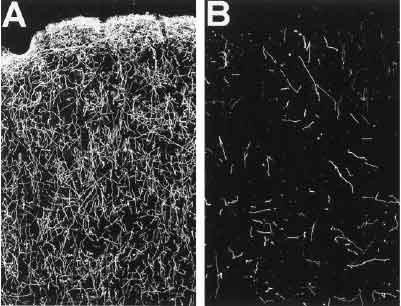Cotcha Yankinov
Bluelight Crew
- Joined
- Jul 21, 2015
- Messages
- 2,952
This thread serves the purpose of continuing discussion while avoiding clogging up a different thread
Previous discussion was as follows
 Originally Posted by JK25
Originally Posted by JK25 
The building blocks of SERT has been depleted also, all of the SERT that already existed has been taken back out of the synaptic left and recycled into hundreds of random molecular structures . ALL OF THE BRAIN's, I SAY IT AGAIN, ALL OF YOUR BRAIN’s SEROTONIN HAVE BEEN COMPLETELY DEPLETED. I MEAN THERE IS FUCKING NOTHING LEFT AT ALL IT IS GONE, the brain must now from scratch rebuild Serotonin and the molecules that makes up Serotonin. This depletion in causing the depressive states, moods and the other negative reactions to be expected on a MDMA comedown.
Some (pseudo) Research done on rats (I mean fuck we are mammals but you can’t compare effects comparatively on both) into the breakdown of MDMA says that Serotonin levels reach normal capacity and normal functioning again within 24-48 hours again after the trip. Hahahaha!!! WTF? Bull Fucking Shit Man. It is comparative to a very skinny guy with no body fat and weighs that 60kg goes to a gym for a weekend and walk out of there looking like a bodybuilder or a rugby player that weighs 120kg. That is utter bullshit and the researcher was lazy and made up a time frame. It takes MONTHS for normal SERT levels to be present and evident enough to be considered neuro-pharmacologically normal and at any normal natural states.
It takes 1-2 months for the protein kinase A and protein kinase C to completely reverse the anti re-uptake inhibitory affects the MDMA had on the re-uptake sites and having them absorbing free floating SERT into the cell body again. It takes 2-3 months for the VMATs neurotransmitters to completely accept Serotonin as a familiar molecule that they must interact with and do their job again to transport SERT to the release site and it takes anywhere from 3 months to a full year for normal monoamine oxidase inhibitors to reach normal levels where they can break down SERT again.
All thoughts are welcome.
Previous discussion was as follows

The building blocks of SERT has been depleted also, all of the SERT that already existed has been taken back out of the synaptic left and recycled into hundreds of random molecular structures . ALL OF THE BRAIN's, I SAY IT AGAIN, ALL OF YOUR BRAIN’s SEROTONIN HAVE BEEN COMPLETELY DEPLETED. I MEAN THERE IS FUCKING NOTHING LEFT AT ALL IT IS GONE, the brain must now from scratch rebuild Serotonin and the molecules that makes up Serotonin. This depletion in causing the depressive states, moods and the other negative reactions to be expected on a MDMA comedown.
Some (pseudo) Research done on rats (I mean fuck we are mammals but you can’t compare effects comparatively on both) into the breakdown of MDMA says that Serotonin levels reach normal capacity and normal functioning again within 24-48 hours again after the trip. Hahahaha!!! WTF? Bull Fucking Shit Man. It is comparative to a very skinny guy with no body fat and weighs that 60kg goes to a gym for a weekend and walk out of there looking like a bodybuilder or a rugby player that weighs 120kg. That is utter bullshit and the researcher was lazy and made up a time frame. It takes MONTHS for normal SERT levels to be present and evident enough to be considered neuro-pharmacologically normal and at any normal natural states.
It takes 1-2 months for the protein kinase A and protein kinase C to completely reverse the anti re-uptake inhibitory affects the MDMA had on the re-uptake sites and having them absorbing free floating SERT into the cell body again. It takes 2-3 months for the VMATs neurotransmitters to completely accept Serotonin as a familiar molecule that they must interact with and do their job again to transport SERT to the release site and it takes anywhere from 3 months to a full year for normal monoamine oxidase inhibitors to reach normal levels where they can break down SERT again.
I don't mean to clog up the thread, but I think there is some misinformation/fear mongering here that needs addressing
The vesicular 5-HT depletion is probably fairly acute. It won't take that long for tryptophan hydroxylase to bounce back and for VMAT inhibition to wear off.
Issues that persist after a few weeks are extremely unlikely to be due to a vesicular shortage.
All thoughts are welcome.




